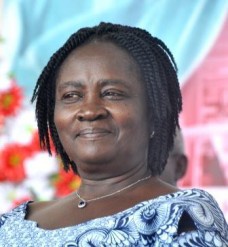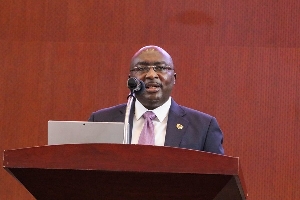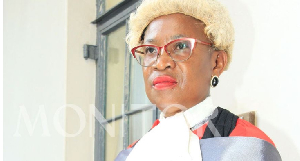Regional News of Wednesday, 2 July 2014
Source: GNA
Minister launches Integrated Approach to Literacy Teachers Guides

Prof Naana Jane Opoku-Agyemang, Education Minister, Monday launched the Integrated Approach to Literacy Teachers’ Guides designed to achieve a common strategy for teaching literacy and language acquisition in both Ghanaian and English Languages.
The Guide is a product of the Teaching and Learning Material Programme in collaboration with the United States Agency for International Development (USAID), the Chicago State University and the Ghana Education Service (GES) to support the drive to early grade literacy in Ghanaian basic schools.
The Guide, which targets kindergarten to primary three teachers and was developed with extensive input from the Curriculum Research and Development Division of the GES, aims at achieving a common strategy for teaching literacy and language acquisition in a way that integrates mathematics, science and literacy together.
Prof Opoku-Agyemang lauded USAID for supporting Ghana to implement both the National Accelerated Literacy Programme (NALAP) and the Textbooks/Teaching and Learning Programme.
She said both programmes promoted literacy in local language (L1) and English Language (L2) in the school environment, adding “these programmes have complemented the Educational Reform by the Government of Ghana on early grade education, which has made kindergarten education, an integral part of the Basic Education System.”
The Minister said both programmes aimed at ensuring a firm foundation for literacy and the development of the children of Ghana.
She said research showed that children in their early years had high language acquisition skills and it was useful if the school system capitalized on this to help them acquire literacy in both the L1 and language of the playground and later, in English or L2, which is the official language of the country.
Prof Opoku-Agyemang said mother-tongue (L1) based literacy instruction approach helped the child to develop literacy and language skills first in the L1 and systematically transfer these skills to L2 through a teacher gradually introducing age-appropriate lessons in English Language.
She said this approach was based on the evidence that mother-tongue based instruction enhances the acquisition and acceleration of literacy skills in L1 and boost transfer to L2.
“We need to allow sufficient time for the mother-tongue to be grounded before the introduction of English Language. It is clear from the results of the national assessment that the rush has not served the learners that well, since we risk increasing the rate of learners who are proficient in none, and thereby effectively setting the whole learning experience back,” the Minister stated.
“Now we look up to the GES, parents and teachers teaching Kindergarten One to Primary Three children to make full use of the materials to help the children learn to read to create a sound foundation for their education.”
Mr Charles Aheto Tsegah, acting GES Director-General, in a speech read on his behalf said: “As a nation, we are yet to harness and maximise the full potential of our work force. Thus I have no doubt in my mind that these Teachers’ Guides and their companion products will be essential tools that will be used in the pursuit of these objectives.”
Ms Marisol Perez, USAID/Ghana Acting Deputy Mission Director, said the Agency’s education objective in the country is “improved Reading Performance in Primary School.”
She said underpinning this focus is the importance of early grade reading as a critical building block for a literate and numerate society. Dr Charles Owu-Ewie, Dean of the Faculty of Languages, University of Education, Winneba, called for a national dialogue on language policy in education.










